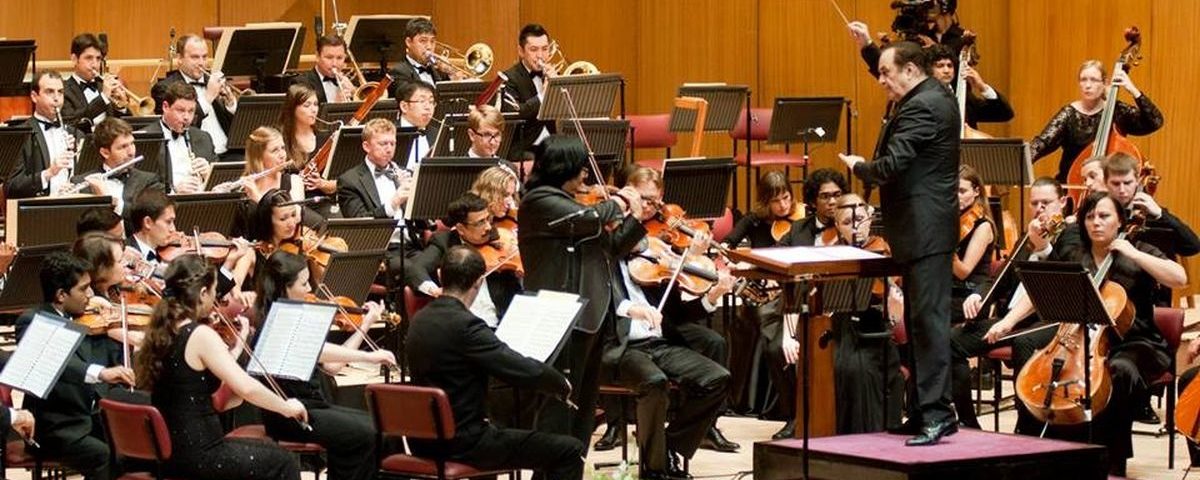Does the conductor of a classical orchestra have a similar role as the CEO of a corporation?

Queen Victoria and Prince Albert
May 3, 2018
Christmas in London: An unforgettable experience at the Royal Opera House
May 3, 2018Similar to the CEO of the company, the conductor must know his or her “business” with a deep understanding. In the case of the conductor, his or her business is music. This means that to be great, the conductor must know all the facets of the score. This includes knowing the music history, harmony structure, and styles of the era from which it comes. Each segment of the orchestra – from strings to woodwinds – has a distinct purpose. No one segment can overshadow the others. The conductor must have a “vision,” just like a CEO, of how the music should be played. This ensures that the orchestra comes together in harmony – just like a well-functioning business enterprise.
Here is a quote I got from highly respected conductor Romain Zante whom I met at UCLA film scoring programme:
“A good conductor doesn’t only make the musicians play together, he makes them play in the same direction, sharing one common vision/interpretation of the piece. He balances the orchestra, makes interpretation choices as deciding to emphasize more one line or another, etc. This is a “job” that requires lots of skills. As many leaders need in other fields.”
How does the hierarchy in the orchestra work? Even if you are the composer of the music, if you have a request, you need to first discuss it with the conductor and concertmaster. Who are concertmasters? They are the leaders representing musicians who also have deep, in-depth knowledge of the score. Like many organizations, a professional orchestra has a huge administrative team to support the orchestra from marketing, advertising, to selection of conductors and ensuring sound financial stability. As much as I hate to say this, talent alone is not enough. The commercial aspect of the entity still has an integral role in determining the survival of the orchestra.
A prime example would be http://www.laphil.com/
In my last article, I discussed the primary role of a conductor and the similarity with that of a CEO of a large corporation. Both of these roles require a vision, a common goal: to ensure the best performance of the team. To make this happen, conductors and CEOs must have strong leadership skills, a deep understanding of human nature, and an in-depth knowledge of their field.


How do you resolve conflicts within an orchestra?
The first time I performed as a pianist with the orchestra, it was a nerve-wracking experience. I secretly said to myself, “How do conductors manage to keep the orchestra together when all the musicians are so well trained?” While conductors must have excellent knowledge of the score, they do not necessarily know how to play all the instruments. Hence, conductors must be prepared to earn the trust of their musicians by showing their understanding of each musician’s particular talent and how that talent fits into the bigger picture. They must have exceptional communication skills and be able to motivate their musicians. Like CEOs, conductors must be very clear in what they want their final product, the performance, to be. They must direct musicians with unwavering confidence in order to execute and deliver on their vision. Discussions are welcome, but conductors must be able to make executive decisions and have the final say. Confusion and chaos would occur if the conductor does not have a specific concept for the music. They cannot risk being under prepared.
Musicians are humans, too
A good CEO knows the strength and weakness of his or her management team. They know that earning the trust of each team member takes time. This is very similar in an orchestra scenario. Conductors must earn the trust from the musicians over time by using solid knowledge and by showing mutual respect. There can be other challenges to overcome, too. Musicians are human beings, after all. Other than having superb skills, we can also endure emotional ups and downs which may inevitably affect our performance. Obviously, conductors are not psychologists. Nevertheless, conductors must be able to see through the emotional aspects and understand that musicians like to be treated – not just as players – but also as individuals with feelings. In addition, a good conductor must be able to keep his or her emotions and temper under control while directing the orchestra to perform the best they can. Keeping a large number of highly skilled musicians in synch is not an easy task. The conductor of the orchestra is the bedrock of the organization. Without a solid foundation, nothing strong can be built, and without the musicians, there would be no music. To put it in simple terms, it takes two to tango.




